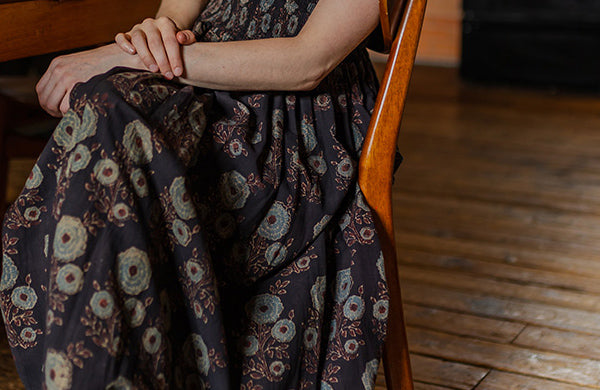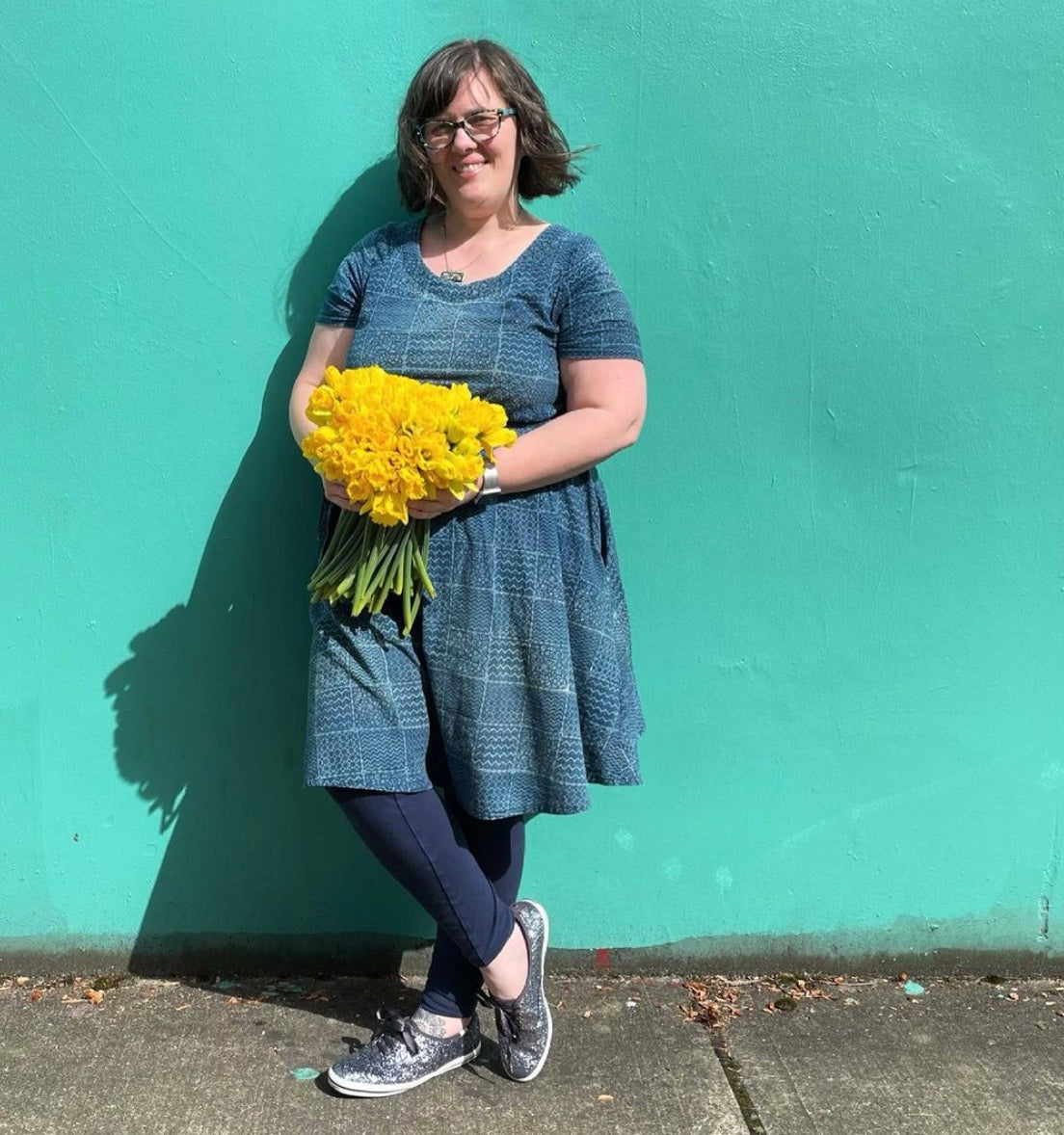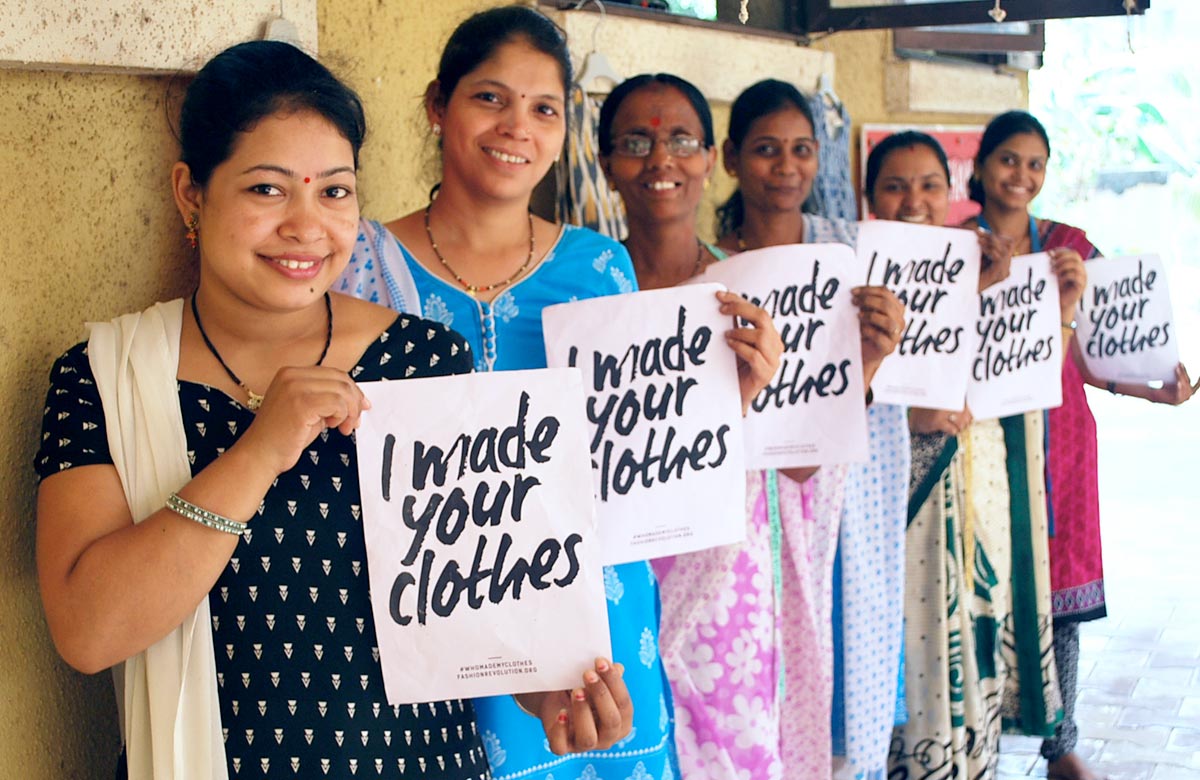What does Fair Trade mean to you? Does it mean eradicating child labor, forced labor and giving a voice to the undocumented workers? Does it mean buying and selling fairly? Or does it mean transforming the world holistically through the agreement’s original principles? Most people think of Fair Trade as being sustainable, safe working conditions, and a living wage; however, in my experience, this is not commonplace.
I was born in a remote village where neither birth nor death records are kept. In fact, if you were to ask me how old I am, I couldn’t tell you honestly. I can guess that I first became a child laborer between the ages of 9 and 10 years old. I worked for well-known clothing corporations that used loosely regulated foreign manufacturing. In order to keep up with the corporation’s demands for low cost and fast production, these factories created illegal sweatshops in Nepal’s inner cities using undocumented workers.
As illustrated in the facts below, there are millions of undocumented, men women and children suffering at the hands of corporate profits:
- 40.3 million men, women and children are victims of slavery internationally
- 151.6 million children aged 5 to 17 are child laborers
- Over 1 billion people live under $1 dollar a day
- 35% of all birth and 60% deaths go unrecorded
- Every 2 seconds a girl is forced into marriage to produce more free labor
Sadly, being an undocumented child put me at great risk to all of these things. Six of us lived, worked, and slept in a 10×10’ room without a bathroom nor clean water. We were forced to work seven days a week for 10 to 12 hours a day, getting paid less than $2 a day. My only bed was the large pile of clothes I produced each day. At night, I fell asleep on these clothes and dreamt of where they would end up and who would wear them. If you are reading this and do not know who made your clothes, you may be wearing the clothes I sewed as a child.
In the sweatshops, I witnessed how chemicals and dyes were discarded into our waterways and drained illegally. Due to industrial waste, our once beautiful rivers that ran through the city are nearly dry. Today, industrial pollutants are the leading poison in Nepal’s rivers. Nature has never known suffering like this, all by the hands of irresponsible and unaccountable corporate manufacturing. In fact, we have lost 30% of our natural resources.
The purpose of this letter is simple: I am asking you to take action to help make a change in the way we produce and trade goods that ensures the rights of every human being and that protects our environment.
In 1946, the values that established what we know as Fair Trade today were compassion, peacemaking, and services that included a spiritual component rather than financial gain. Throughout my experience, I have seen how Fair Trade principles can literally restore the human spirit through a sense of dignity and pride. Imagine what true Fair Trade could do for the 7.3 billion souls living on this planet!
The principles of Fair Trade have the potential to heal mass suffering in the world while simultaneously offering an abundant and thriving system of global trade. Additionally, there is a growing market for conscientious buying and it may behoove you both from a financial, and humanitarian, angle to consider my plea. My experience as a child laborer opened my eyes to the individual, environmental, and societal damages incurred from corporations who prioritize higher profit margins over the quality of life in poorer countries even though conscientious production is not only possible but profitable and impactful.
When considering our larger societies and their economies, we are mostly concerned with buying, selling, and competing with each other; hence, we have become a money driven and competitive society. By our actions it seems we do not care about human rights or our environment. This statement is proven evident by most of the American and European corporations who move production to poorer countries to make profits off of humanity and their environment. When the buyer negotiates with these manufacturers, they only discuss the product, quantity, price, and timeline, but don’t survey the production sites. If they did, they would have found my 9-year old face in that unmarked building, and perhaps my village wouldn’t be undocumented. In 2018, the people of that village’s births and deaths would have been recorded, and my aunt wouldn’t have been murdered because she advocated for her basic human rights.
Now, as an adult, I am educated, empowered, and fully aware that all social injustices are actually solvable problems. It’s up to us to change the world for each and every one of us but you and your corporation have far more power to effect change. We live in a globally connected world where the actions of one person or one country or one corporation affects the other. Such actions are not only based on trade and investment but also on matters of people and environment. I started to talk about my life and my work because few buyers understand my business’ principles and why they would be inclined to work with us. Most buyers are looking for cheap and fast services which is why I felt the need to find like-minded people who can work with us and who can be part of this change.
If there is no equality (gender, economic, environmental, etc.) then neither will people nor the society will feel fulfilled. Therefore, I have made a vision to eliminate this feeling of imbalance through LOCWOM Public Charity and Local Women’s Handicrafts, a clothing manufacturing company that uses a 100 year old loom. I don’t know how much change I can effect internationally but I know I have created a change in my society. These social businesses are changing not just the lives of women but the picture of the whole family and this is ending a major imbalance in our society.
The following is a snapshot of what we do that will hopefully encourage you and your corporation to follow suit:
-
We started the campaign Clean City because the people of Kathmandu valley are unknowingly inhaling fumes equivalent to the smoking of 10 cigarettes every day;
-
We provide menstruation wellness kits to poor school girls and women so they can feel comfortable and not miss school;
-
We started the project Donate Creative Backpack because 20% Nepali students do not have sufficient supplies to attend school;
-
Local Women’s Handicrafts follow the 10 principles of Fair Trade;
-
We have a biogas where we recycle all our leftovers into a cooking gas;
-
We train Earthquake victims and marginalized women with sustainable skills to make them independent. Since 2008, we have trained more than 100 women;
-
We also have a cooperative shop where we invite every buyer to connect with all the employees and it is mandatory that every buyer visits our factory and connects with each artist.
I believe in the business of empowerment. I believe in empowering the people to improve their own lives. We are creating opportunities to inform other factories about working under Fair Trade conditions is possible, that a living wage is possible, and that ethical trade is possible. This is why I ask for this call to action, laid out below, as it has the opportunity to ripple out into the world in an exponential capacity. This effect will challenge several facets of the existing global currency and trade system, but I promise you the rewards it will bring to the world will be far more valuable than a profit.
I am asking you to trade:
|
Corrupt production facilities |
FOR |
Working with disadvantaged producers |
|
Environmental pollution |
FOR |
Agreements to protect the earth |
|
Corporate greed |
FOR |
Safe working conditions |
|
Child laborers |
FOR |
Equal workers’ rights for all men & women |
|
Slave labor wages |
FOR |
Living wages |
|
Questionable business ethics |
FOR |
Transparent agreements of mutual profits |
Together as businesspeople, we can make the difference the world desperately needs. We can create and support human rights, human dignity, environmental protection, and eventually thriving societies that are self-sustainable. We have to increase the quality of the common citizen and even more so the quality of life of the poor. I know from personal experience that the people of the world’s poorer countries are looking for one single chance for a better life and if we bring healthy and quality systems they are the ones who are going to heal our planet.
Take Action: Empower those working in your factories
Friends, the transformational shift is coming our way because we are finally waking up. You can be a part of it with me, or you can be held responsible for all the atrocities listed above that will continue to happen if you don’t change your company’s production. I encourage you to take the first step today, either by contributing to LOCWOM through our kickstarter fund, which will allow us the resources necessary to continue the work needed to spread our message as far and as wide as possible., or by beginning to create new corporate policies which take into consideration the well-being of those who are tasked working in your factories.
Will you answer this call to action by taking the steps necessary to ensure people, like myself, will never have to endure the hardship caused by ignoring Fair Trade practices? I hope your answer is yes.
In Solidarity,
Nasreen Sheikh, Founder & CEO of LOCWOM


